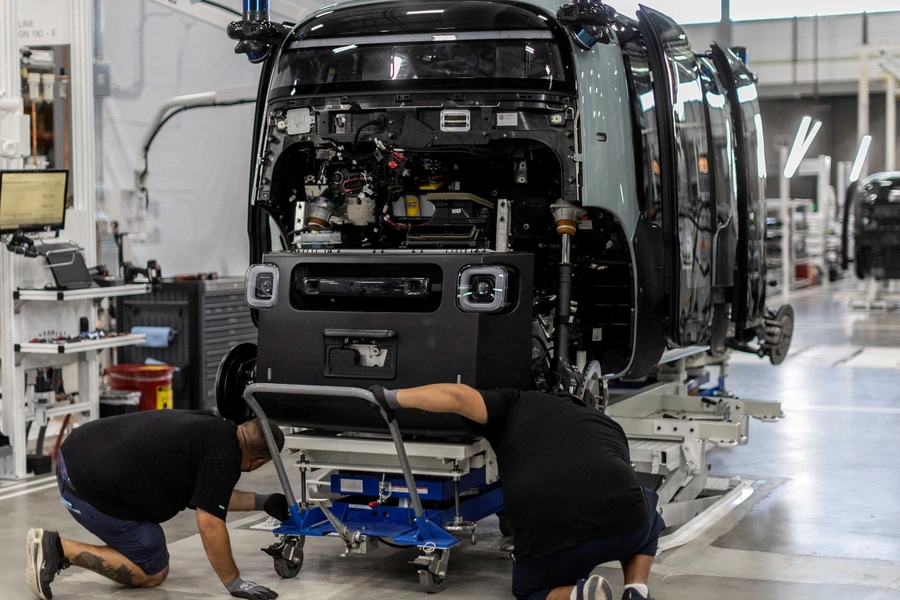China Strategy Initiative
China Policy Accelerator
China Policy Accelerator
The China Policy Accelerator produces actionable policy recommendations on what the United States should do not just abroad but at home, from fixing the defense industrial base to securing critical infrastructure from cyberattack.

Featured Content
Panelists discuss the future of U.S.-China relations under the new Trump administration, including recent developments relating to trade, technological innovation, and increasing military tensions in the Indo-Pacific.
China Policy Accelerator Projects
How should America fix its defense industrial base, harness defense technology innovation, protect critical infrastructure from cyberattack, or implement industrial policies?
Defense Industrial Base
Critical Infrastructure

Learning From Past U.S. Infrastructure Investments
Article by Roger W. Ferguson Jr., Author and Maximilian Hippold, Author

To Drive National Security, Secure Supply Chains and Personal Data
Article by Kat Duffy and Kyle Fendorf

Reporting on Infrastructure Investment
Article by Arnab Datta and Ashley George
Industrial Policy
China and Congress
Securing America: Key Authorities Under the Defense Production Act
Rush Doshi’s testimony to the U.S. Senate Committee on Banking, Housing, and Urban Affairs addresses the significance of the Defense Production Act and steps Congress can take to reform it.
Recent Work
-
-
-
-
-
China's eldercare robots push prioritizes economic growth and industrial policy over eldercare needs.
-
Four points framed Dr. Doshi’s remarks to the U.S. Senate Committee on Banking, Housing, and Urban Affairs. First, China is an ambitious and formidable competitor unlike any the United States h…
-
-
-
-
Zongyuan Zoe Liu, Maurice R. Greenberg senior fellow for China studies at the Council, sits down with James M. Lindsay to discuss China’s response to President Donald Trump’s tariff hikes and what it means for the future of U.S.-China relations.
-
The United States is lagging far behind China when it comes to military supremacy in the Indo-Pacific, where Beijing has increased pressure on long-time U.S. allies and partners.
-
The United States is living through the most intense period of geopolitical competition since the end of the Cold War, and its strategic rivals—China, Iran, and Russia—have expressed a shared desire …
 Online Store
Online Store
















